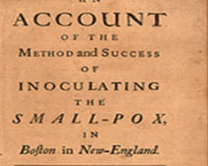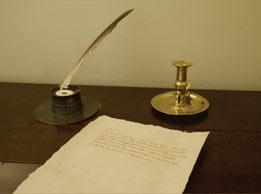Diseases like smallpox, typhoid, and measles were often fatal, especially for children. Colonial people did not understand bacteria and viruses the way we do today. They were unaware of how germs spread and feared getting diseases that they could not control or treat. Before the creation of a smallpox vaccine in 1796, colonists could be inoculated. They were deliberately infected with a bit of live smallpox, which caused them to get the disease in a less deadly form, so even inoculation was dangerous.

Hannah's Concerns

Hannah must have had countless concerns. She surely worried that her parents would never return, and that she and Samuel would have to make decisions for her siblings, especially when the younger girls wanted to marry. She feared the outbreak of diseases, such as measles and smallpox, and the dangers they presented to her family. Hannah herself had already survived smallpox, but in 1751, the disease struck other family members. Perhaps Hannah prayed that she and her family would remain healthy. Both of Hannah's brothers eventually left America for Madeira to take part in the family's business. Hannah's parents sent for her sister, Deborah, as well. Hannah and Samuel moved to Philadelphia, Pennsylvania, presumably with the remaining three girls, just as the Brown family was arriving in London Town.


